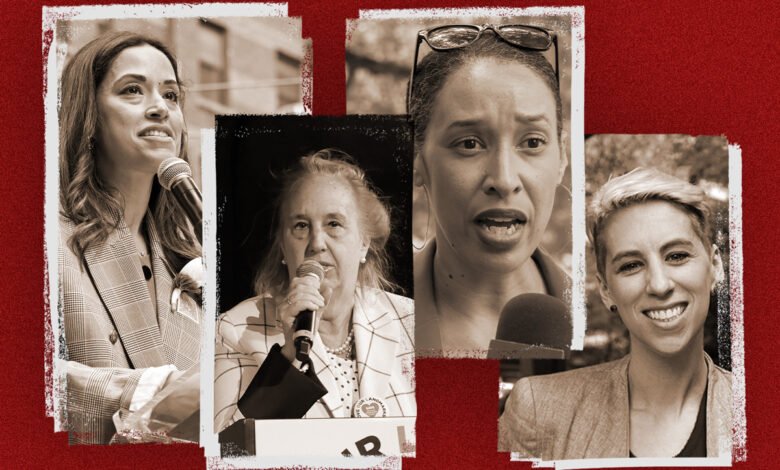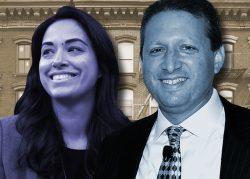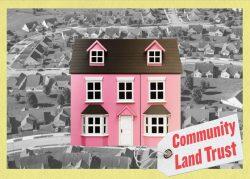New York City Council Mulls Social Housing Bill Package

The City Council is considering a package of “social housing” bills that would prioritize housing built and owned by nonprofits.
One measure, the Community Opportunity to Purchase Act, or COPA, would give nonprofits and community land trusts the first crack at buying residential buildings with three or more units. Owners would need to give such organizations — approved by the city — 120 days to submit offers to buy their buildings, during which time they wouldn’t be able to accept rival bids.
During a City Council hearing on Tuesday, the Adams administration threw some cold water on the bill, citing concerns about overloading the Department of Housing Preservation and Development, which would be tasked with facilitating these deals and enforcing the measure. It also found the measure’s current purview too broad.
Lucy Joffe, deputy commissioner of policy and strategy at HPD, suggested the measure should be limited to properties with significant financial and physical distress, where the city could identify a qualified, new owner (not necessarily a nonprofit) with experience rehabbing and preserving affordable housing.
“Any such approach would have to be both narrowly targeted and well-tailored for our housing market, to minimize operational and administrative challenges for the agency and any prospective buyers and negative impacts on the housing market,” Joffe read from prepared testimony.
Social housing is an umbrella term used to describe models of ownership that, to varying degrees, are insulated from market forces. The housing is government- or resident-owned, kept affordable long-term through capping rents or, in the case of condos or co-ops, restricting resale values. Such policies have grabbed the attention of progressive lawmakers, while, in some cases, drawing criticism from the real estate industry for interfering in private transactions and potentially drawing resources away from other housing initiatives.
The New York state legislature is also considering a Tenant Opportunity to Purchase Act, or TOPA, which would give tenants first dibs on buying their building. Similar laws have popped up in other cities, providing the right of first offer and/or refusal to nonprofits or a building’s tenants.
Washington, D.C., has had a TOPA policy on the books for the last 40-plus years, but is considering reforms that would exempt new and market-rate properties from the requirements. Chicago recently launched a pilot TOPA program in some neighborhoods. Owners in these markets argue that such policies slow sales and deter investment, as would-be buyers don’t want to be saddled with lengthy requirements if they decide to eventually sell the property.
The New York Apartment Association submitted testimony pointing to San Francisco’s COPA policy, which provides a much shorter window for nonprofits — 30 days — to bid on a property. The California city also initially paired the new measure with funding to help nonprofits meet that faster timeline. Absent funding and with a longer bidding window, COPA has a “significant risk of added costs and delay in every transaction,” the group argued.
Joffe said New York could learn from other cities by limiting the scope of its COPA policy. As written, the COPA bill, sponsored by Council member Carlina Rivera, would apply to 130,000 buildings in the city.
The Real Estate Board of New York opposes the measure, saying it “prioritizes one type of business model over another in an overreach into private property transactions.”
“This doesn’t help put buildings into the hands of tenants. It just assumes a nonprofit is a better landlord,” Dev Awasthi, vice president of government affairs at REBNY, wrote in prepared testimony. “The exclusion of any private entity and any private-public entity from the qualified entities list is both pernicious and based on false valuation of good versus bad for business practices.”
The bills discussed Tuesday, including COPA, have been introduced in previous years and continue lawmakers’ efforts to boost nonprofits. Another measure, sponsored by Council member Gale Brewer, would create a land bank, which the city would use to acquire, warehouse and then transfer properties for the purpose of building or preserving affordable housing. One of the bills in the package would give nonprofits preference in bidding on city-owned land.
The hearing coincided with the city’s first tax lien sale since 2021, and the land bank was repeatedly pitched as a possible alternative to selling the debt to private trusts.
Supporters describe the measures as a way of leveling the playing field for nonprofits to buy properties and to combat speculative developers from scooping up buildings in gentrifying neighborhoods.
“Passing this is a critical step in fighting back in fighting predatory real estate,” Shantanu Dew, a project manager with the East New York Community Land Trust, said.
Paula Segal, an attorney with TakeRoot Justice, questioned restricting COPA to distressed properties, saying that doing so would mean limiting the policy to projects where HPD is involved.
“HPD moves really slowly,” she said. “I’m fearful of a COPA program that is entirely in HPD’s purview.”
Last year, New York City’s chapter of the Democratic Socialists of America launched a campaign to promote a state bill to create a public benefit corporation to renovate buildings or acquire land to construct permanently affordable housing. The City Council is considering a bill, sponsored by Council member Sandy Nurse, that would study the feasibility of establishing a separate city agency focused on “the promotion and development of social housing.”
Joffe said on Tuesday that HPD is better suited to focus on this work, and that creating another agency “risks duplicating and siloing work that is already central to HPD’s mission and would be more costly and less efficient.”
Read more

City Council mulls bill giving nonprofits first crack at buying resi buildings

The social housing movement picks up steam




